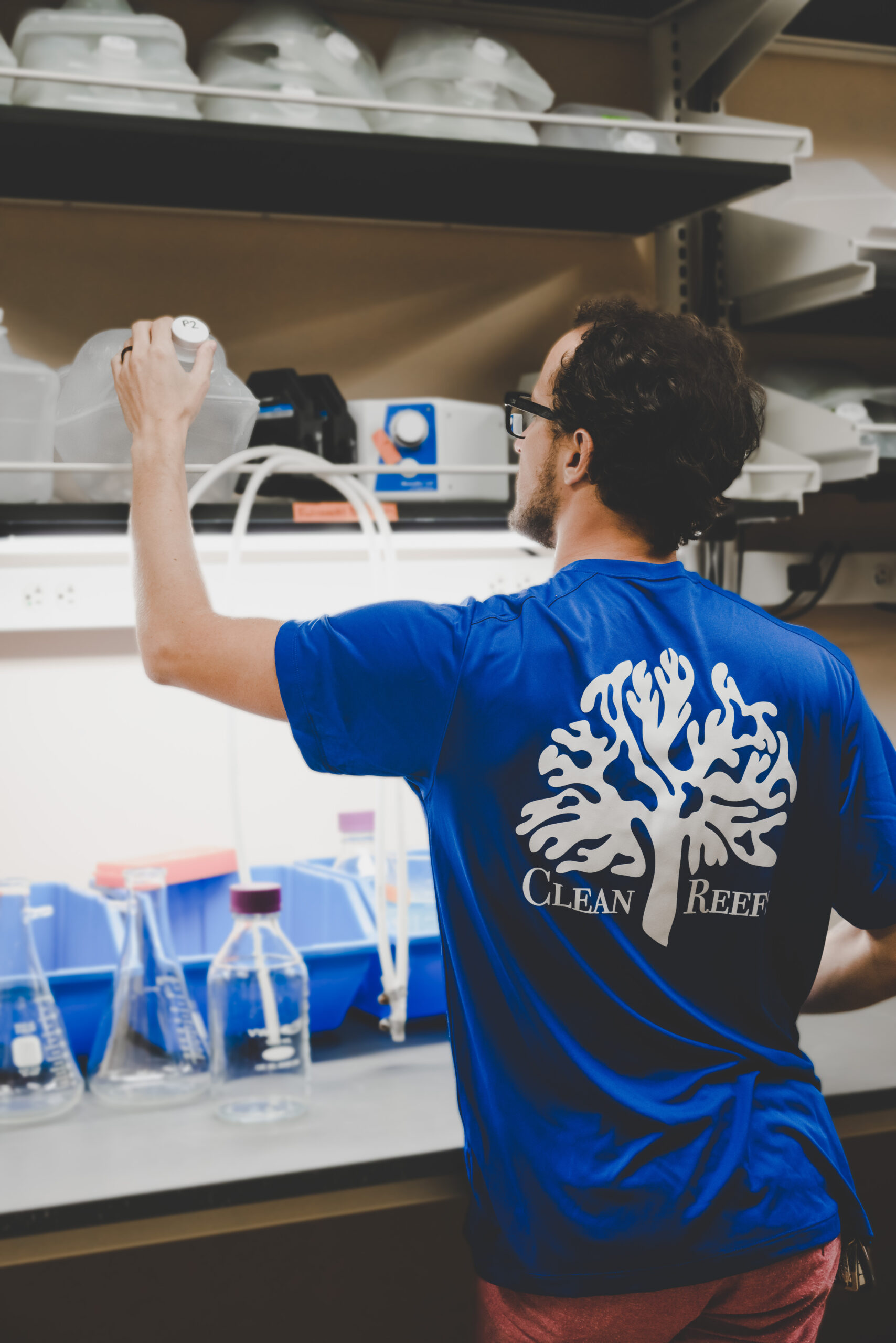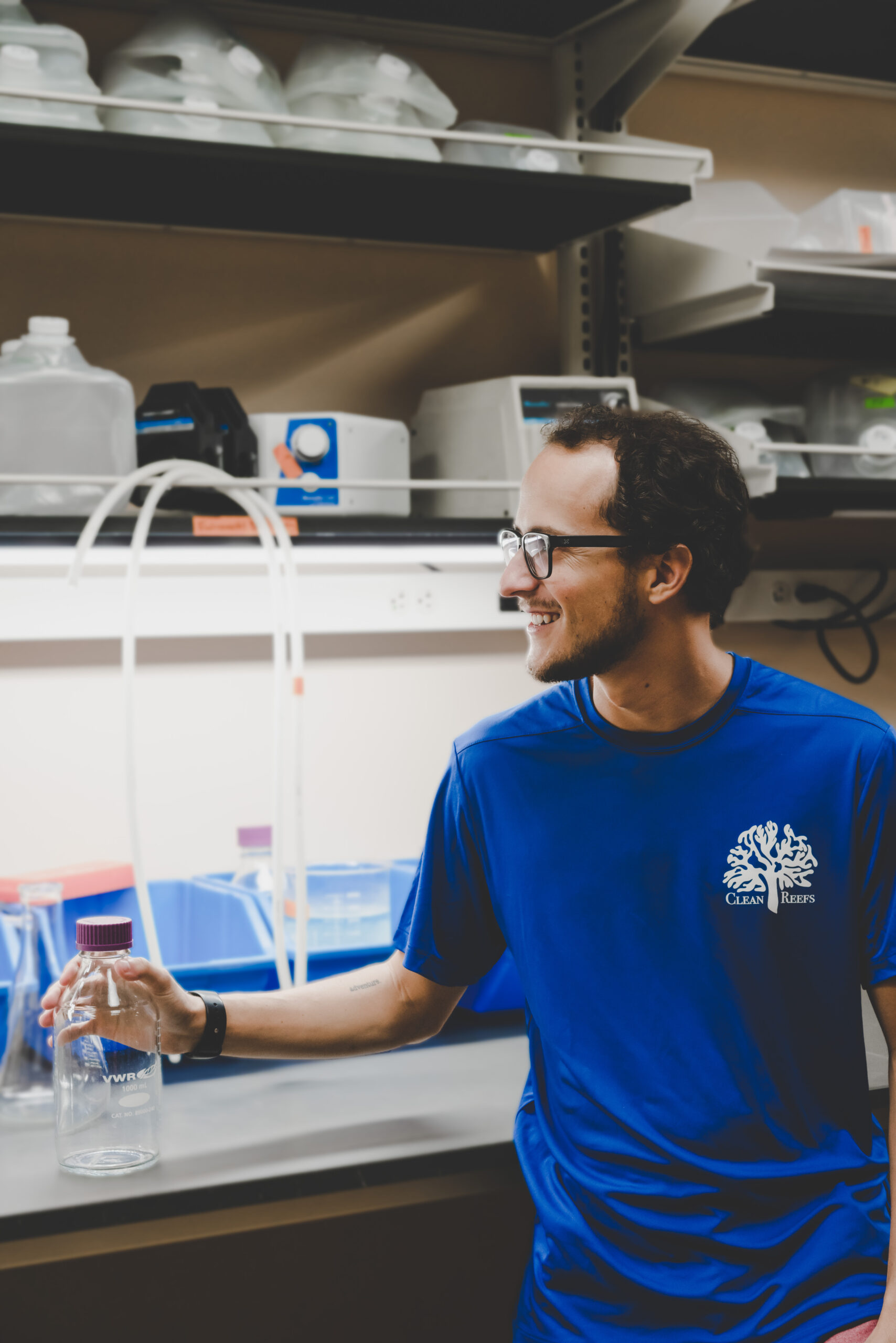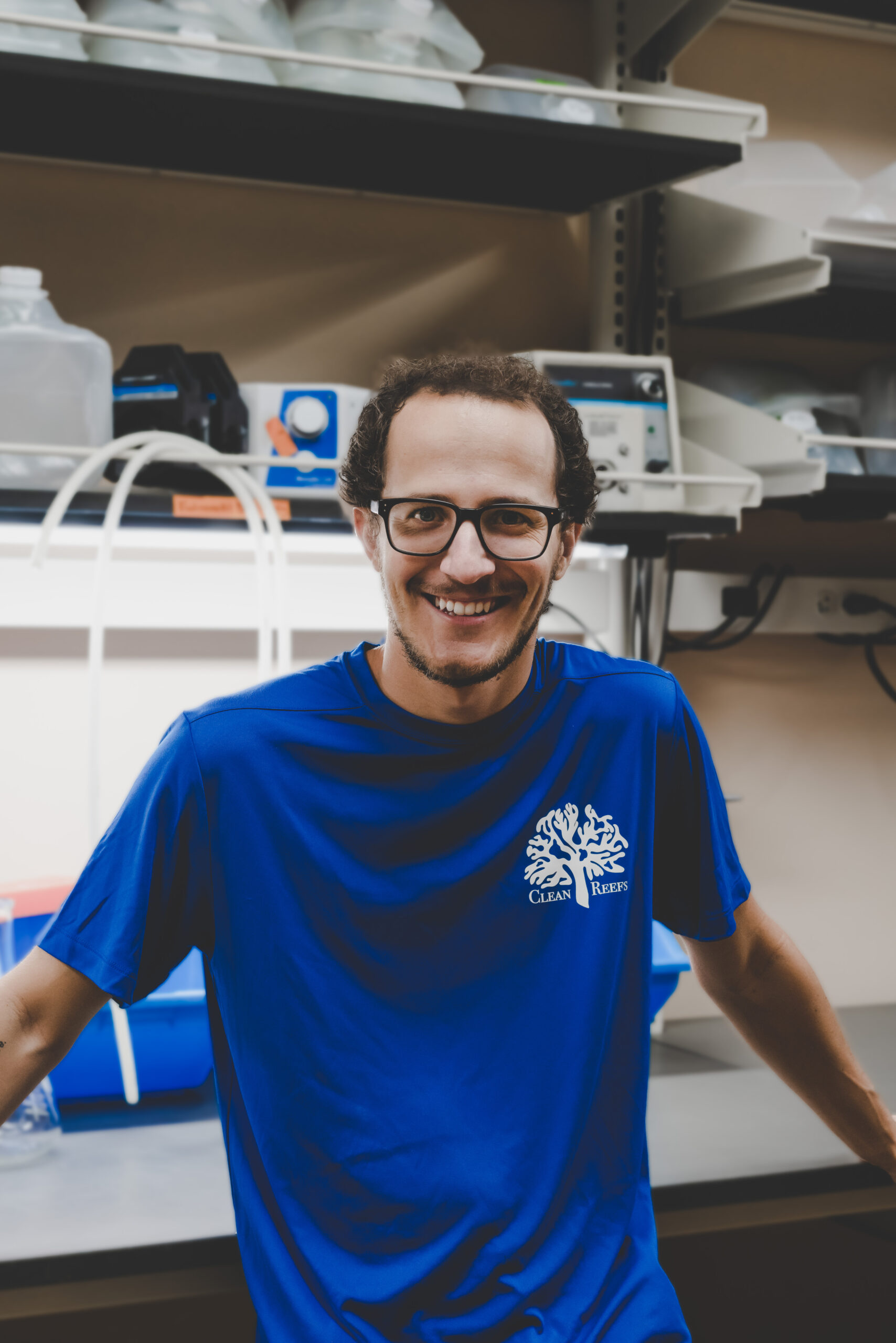Research
Coral reefs support the most diverse assemblages of marine life on Earth, yet are declining due to local and global stressors. Rapid and widespread monitoring is essential for tracking ecosystem responses, but assessment of coral communities traditionally relies on time-consuming visual estimates of coral cover. The analysis of environmental DNA (eDNA), free DNA from filtered seawater, offers fast and efficient insights into the abundance and distribution of species.

Patrick’s research provides the data to make informed decisions about coral reef conservation by taking the latest and greatest in molecular technologies and using it to understand the relationships among the ecology, biology, and diversity of animal life on Hawaii’s reefs. Patrick’s use of eDNA for corals is the scientific equivalent of a high-resolution snapshot of our coral reef ecosystem, making monitoring efforts substantially easier and cheaper throughout the state and national marine monuments, especially during widespread coral bleaching and mortality events. The decline of coral reefs across the globe has gained traction in recent years, but traditional monitoring efforts are highly resource-intensive (costing thousands of dollars and requiring teams of scientists or divers for a single site). Environmental DNA surveying of coral reefs is a cost-effective method (simply using bottles of seawater) to monitor coral reefs, especially in areas that are logistically challenging to access. Establishing regular surveys in impacted areas is crucial, as shifting baselines continue to occur due to climate change.
Drone imagery of O'ahu's southern coastline where researchers in the Molecular Ecology Lab at the University of Hawai'i use coral DNA from filtered seawater to assess coral cover on local reefs (Credit: Patrick K. Nichols).
Drone imagery of coral patches along the coast of Maunalua Bay, O'ahu, Hawai'i where researchers in the Molecular Ecology Lab at the University of Hawai'i use coral DNA from filtered seawater to assess coral cover on local reefs (Credit: Patrick K. Nichols).
Drone imagery of O'ahu's southern coastline where researchers in the Molecular Ecology Lab at the University of Hawai'i use coral DNA from filtered seawater to assess coral cover on local reefs (Credit: Patrick K. Nichols).
Drone imagery of O'ahu's southern coastline where researchers in the Molecular Ecology Lab at the University of Hawai'i use coral DNA from filtered seawater to assess coral cover on local reefs (Credit: Patrick K. Nichols).
Researchers in the Molecular Ecology Lab at the University of Hawai'i at Manoa use rapid techniques to filter coral DNA from seawater to assess relative abundance of corals on local reefs (Credit: Patrick K. Nichols).
Researchers in the Molecular Ecology Lab at the University of Hawai'i at Manoa use rapid techniques to filter coral DNA from seawater to assess relative abundance of corals on local reefs (Credit: Patrick K. Nichols).
Researchers in the Molecular Ecology Lab at the University of Hawai'i at Manoa prepare samples for filtration of coral DNA from collected bottles of seawater (Credit: Patrick K. Nichols).
Reef in a tube: researchers in the Molecular Ecology Lab at the University of Hawai'i at Manoa use DNA from filtered water to quickly assess relative abundance of corals on local reefs (Credit: Patrick K. Nichols).
Reef in a tube: researchers in the Molecular Ecology Lab at the University of Hawai'i at Manoa use DNA from filtered water to quickly assess relative abundance of corals on local reefs (Credit: Patrick K. Nichols).
Patrick Nichols, a graduate student at the University of Hawaiʻi at Mānoa, uses environmental DNA (eDNA), shed from corals into the water, to detect changes in reef-associated organisms throughout temperature-induced bleaching and recovery. While many days are spent collecting samples in the field, seawater must be filtered in order to extract coral DNA. (Credit: Patrick K. Nichols).
Patrick Nichols, a graduate student at the University of Hawaiʻi at Mānoa, tracks changes to coral reef communities. As a scientific research diver, his research aims to help conservation initiatives in Hawaiʻi and worldwide. (Credit: Patrick K. Nichols).
Patrick graduated with a B.S., double majoring in Marine Science and Biology from the University of Miami where he worked with the invasive lionfish (Pterois spp.), and the molecular ecology of coral reefs. Patrick graduated with his M.S. degree from the Marine Biology Graduate Program at the University of Hawai'i at Manoa and is currently pursuing a PhD in molecular ecology, investigating environmental DNA (eDNA) and the genomics of Hawaiian corals. His primary research uses eDNA from water samples to survey shallow and deep coral reefs, tracking changes in community structuring, the effects of climate change, and the spread of invasive species.
Patrick Nichols, a PhD student at the University of Hawaiʻi at Mānoa, uses environmental DNA (eDNA), shed from corals into the water, to detect changes in reef-associated organisms throughout temperature-induced bleaching and recovery. While many days are spent collecting samples in the field, seawater must be filtered in order to extract coral DNA. (Credit: Patrick K. Nichols).
Patrick’s research helps inform management initiatives associated with coral reefs and climate change, and he is constantly thinking of new approaches to age-old ecological questions. With both his Bachelor’s and Master’s degrees in Marine Biology, Patrick is passionate about scientific education, outreach, and relevant research. Patrick is also a PADI Master Scuba Diver Trainer (MSDT), TDI tech diver, and scientific diver in accordance with AAUS.



